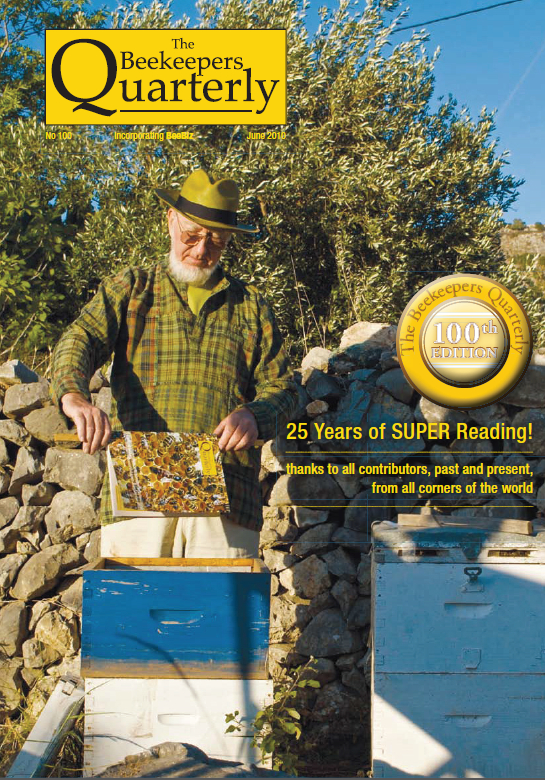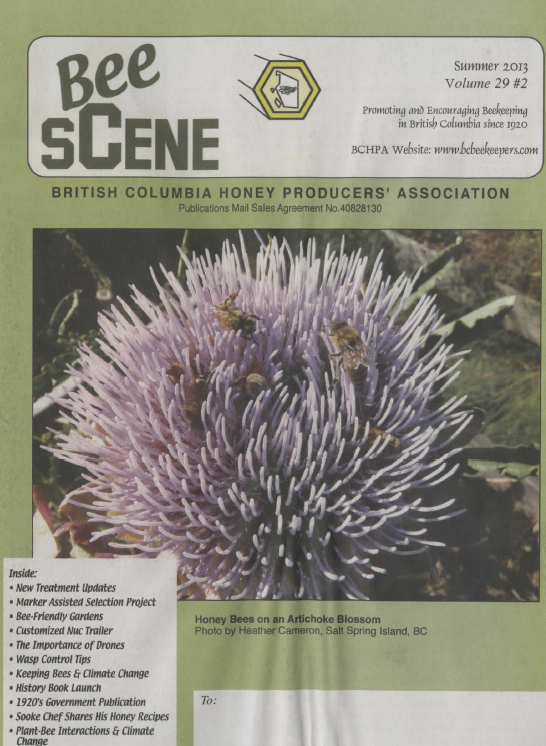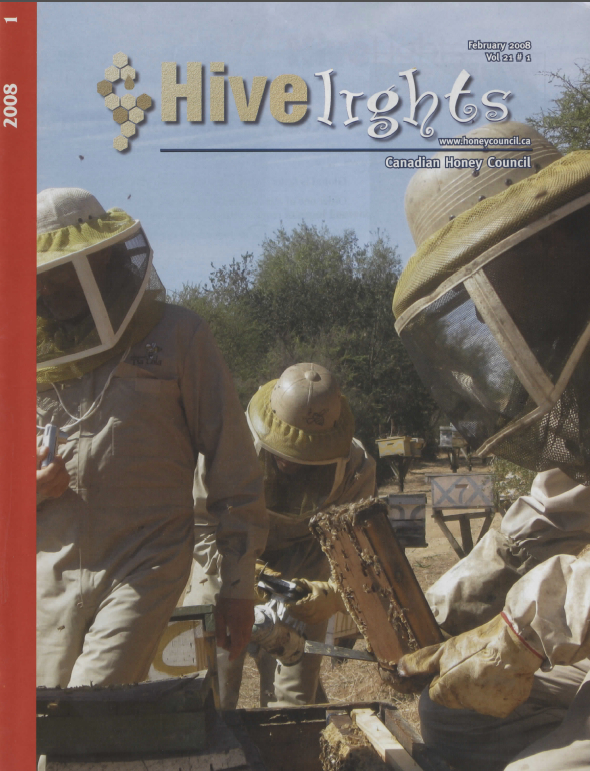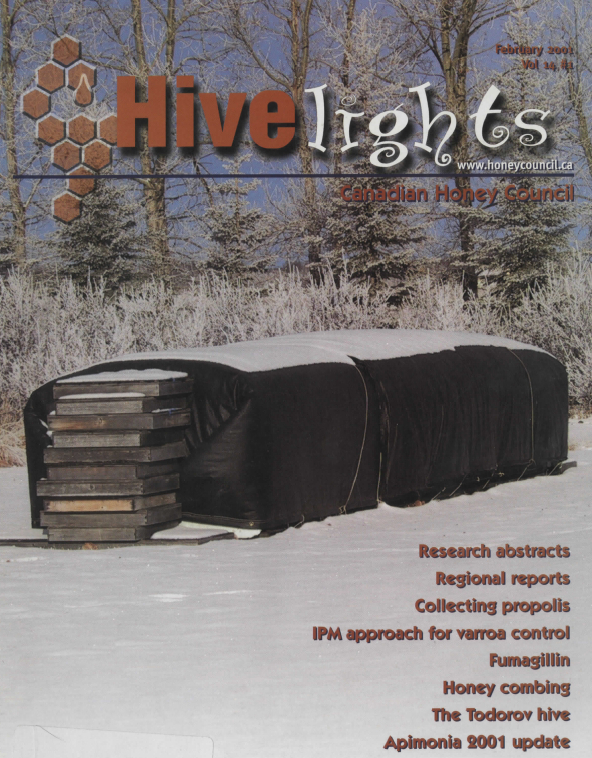A selection of a few of the published articles by Ron Miksha. You'll find more amazing writing on Ron's Blog.
Bees: Shaken and Stirred
First published in American Bee Journal. Read the article: Author's Copy
Near the epicenter of the earthquake, Chile's second largest city, Concepción, jumped an amazing ten feet west. The whole city, in one big piece, was conveyed along its thrust-fault. The earthquake shifted almost a million people, their houses, cars, fire stations, and schools, roads, trees, and parks - a whopping three yards. If you lived in Concepción, you'd think your neighbour's house was where it was the previous Friday evening. But you'd be wrong. According to GPS tests run by geophysicists from Ohio State, the entire city had lurched a full ten feet.
If you had the misfortune (and talent) to jump up into the air the moment the earthquake struck (and stayed there half a minute), you would have come down some distance from where you'd started. Well, actually, you would have dropped where you started, but your neighborhood would have moved under you. Meanwhile, two hundred miles away, at the capital of Santiago, the city and its five million people were lifted and dropped about one foot west. And all over the country, bee hives were lifted and dropped from their pallets and perches.
Less Stress - More Fun: Comb Honey Beekeeping
First published in Beekeeper's Quarterly. Read the article: Author's Copy
Boys - myself included - are enamored by loudly clanking, whirling machinery. Shortly after getting his first hive, a boy will start shopping for an extractor. It shakes all over the floor, and it slings honey out in gooey gobs. Such fun! Then there's the uncapper. When I was a kid, I fell in love with a Bogenshutz that a neighbour beekeeper owned. I was so envious. It had whips and chains with sharp little hooks. If you dropped a frame into Bogey the wrong way, pieces of wood exploded through the slot where your hand had better not be. Who could ask for more?
...halfway through his 1976 British Handbook of Bee-Keeping, Herbert Mace announces: "I deliberately refrained from giving details about the production of comb honey in the first part of this book because it is, in my opinion, a mistake for beginners to attempt what is admitted to be the most difficult thing to accomplish satisfactorily." When he says, "the most difficult thing to accomplish satisfactorily" he is including piloting a space shuttle and settling a three-year-old for a nap. So, this is fair warning - although the beauty of a perfect honey comb is unmatched in the world of food, and although no honey product is closer to the pure and natural sweet that bees intended for us to eat, producing comb honey is not for the easily discouraged.Keeping Bees While the Climate Changes
First published in BeesCene Read the article: Author's Copy
Among the beekeepers' climate change threats are increased likelihood of fires, which could turn your apiary into an ash pile. But fires can also lead to more flooding from uncontrolled runoff. The fires would be more likely because of the spread of pine beetles and drought - both responding to predicted climate change trends. Along with pine beetles, vermin as diverse as yellow wasps, bears, and small hive beetles will all be on the move with continued temperature rises. Your bees will face habitat loss, with native plants being replaced by invaders. Bees need water - during expected prolonged droughts, they will spend even more time lounging about at the neighbour's pool. The water shortages - especially as glaciers disappear - will affect you, too. Not only will water cost more, but fields of irrigated clover and alfalfa may become a memory. The BC government sees delta flood management a likely problem as seas rise and flooding from rapid glacier melt and increased runoff of denuded lands increase.
Chilean Queen Breeding
First published in HiveLights Read the article: Author's Copy
Chile is California with nicer and fewer people. Roads are quiet and unhurried. Scenery includes the snow-capped Andes and the white-capped surfs of rugged beaches. Chile's extensive agriculture rivals anything in the world. Tens of thousands of hectares of vineyards, walnuts, avocado, citrus, olives, almonds, apples, kiwis, plums, raspberries, blueberries, peaches, cherries, plus exotics like quince, physalis, carica, and chirimoia fill Chile's irrigated central valleys. Eucalyptus forests blanket the less arid hillsides. And some lucky beekeepers are in the center of it all.
I met Francisco Rey Martinez, a beekeeper with about 8,000 colonies in avocado pollination and 3,000 queen-mating nucs on his 30 hectare ranch. This queen breeder of 25 years experience employs about a dozen assistants, some performing tedious labour, but most of them capable beekeepers grafting and caging queens.
Honey Combing
First published in Hive Lights. Read the article: Author's Copy.
There are two things that might make beekeeping more enjoyable - honey bees that don't sting and bee equipment that is weightless. Weightless bee equipment is almost a reality. My friend, Harms Kluehoff, has it figured out. He uses full-depth hive bodies for honey supers. To most of us, these boxes can easily weigh eighty pounds. But to him, they are weightless. "I hire the Gillespie twins. Six-three, two-hundred-pound lads. They do all my lifting. You probably don't have a set of Gillespies in your neighbourhood, so maybe you'd appreciate light-weight bee equipment as an alternative.
I started to think about my bee boxes these past few weeks because the bee work is over and I have a bit of time. My bees are wrapped. Most of my honey has been sold at ten dollars a pound on the Internet. There's not a lot to do, except sit back and think about bee equipment. This is the time of year when most of us think too much.
Read, Learn, Know: Ron's First Book Ron's Second Book Ron's Bee Blog Ron's Geo Blog
copyright 2017 Ron Miksha




